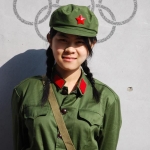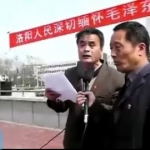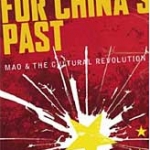Articles tagged with: Maoism
Chinese Revolutionary History, Contemporary China, International Observer »

For much of the working class and oppressed communities in India, the Chinese “model” is not its current capitalist market system, but the socialist revolution that preceded it under the leadership of Mao. In both nations the desperation of hundreds of millions in the face of “globalization” is growing, now heightened by the worldwide capitalist crisis. Though each government has shown an ability to buffer some of the worst effects of this collapse, and taken recent measures to ameliorate the burdens on the working classes, in the longer run they will not be able to escape the growing contradictions of world capitalism. Already, in both China and India, protests against ever widening polarization, impoverishment, corruption, land thievery and ecological devastation are growing in number, size and violence. For the Chinese, who had a revolution and then turned back to the capitalist road, it would take a major reversal to once again move toward socialism. India never had a similar revolutionary socialist transformation, but the forces to carry it out are stronger now than ever. The Indian and Chinese working classes and leftist forces today increasingly face parallel conditions under global capitalism led by an imperial United States. Though they have little contact at present, the future may bring a new unity, as the contradictions of the world capitalist system deepen and drive them more closely together.
Chinese Left, Lance Carter »

This article is an overview of the history of the Chinese New Left; their attempt to move away from a left-wing political agenda defined by the CCP; their successes, limitations, and failings in this regard; and the role discourse on the idea of a “Chinese alternative” has played in New Leftist debates with liberals. The article focuses on two prominent intellectuals from the Chinese New Left-Wang Hui and Cui Zhiyuan. It argues that the contradictory role of the Chinese state as both mitigator and patron of market reforms is one of the main obstacles to developing a more radical left-wing political movement in China.
Mao Zedong, Ongoing Struggles »

Thanks to a reader who forwarded this video and translation of a rally - “A Memorial for Chairman Mao and Other Martyrs” - held in Luoyang, Henan Province, earlier this month. Apparently a number of people have been meeting in a public square in Luoyang for some time to ‘publicize Mao Zedong Thought‘, most of the time without incident. Recently, however, the city government in Luoyang has taken a dim view of their actions, and begun to crack down on the participants, urging them not to gather. It is not entirely clear, but the precipitating event may have been an anti-GMO rally earlier this year, wherein the introduction of GMO grain was viewed as an example of the collusion between foreign interests and ‘traitors’ (the officials that approved the deal).
Chinese Left, Chinese Revolutionary History, Husunzi, Reviews »

Comments on Chris Bramall’s review of The Battle for China’s Past by Mobo Gao. In this review Bramall makes some criticism that I think Mobo would appreciate, and which may be important for thinking about how to assess PRC history in general. Unfortunately Bramall’s own perspective is limited his developmentalism – that is, his commitment to a vision of economic and social development that, while critical of inequality, assumes the inherent goodness and necessity of things like continued urbanization, increasing labor productivity and output, and – apparently – the industrialization of agriculture and the disappearance of peasant farming.

